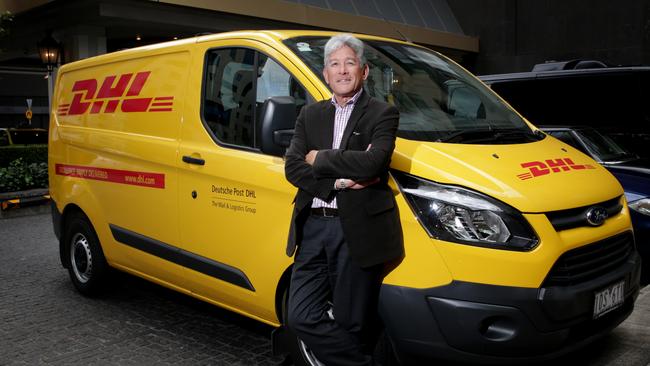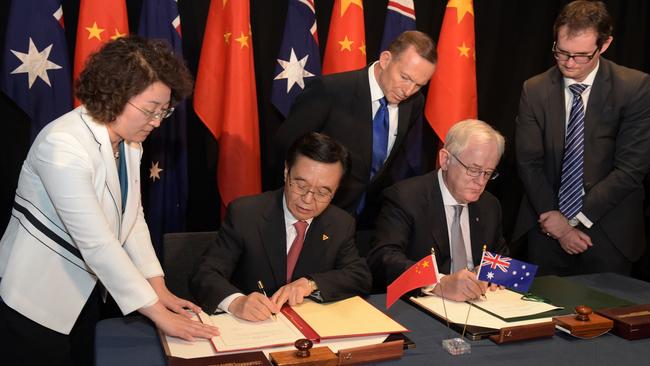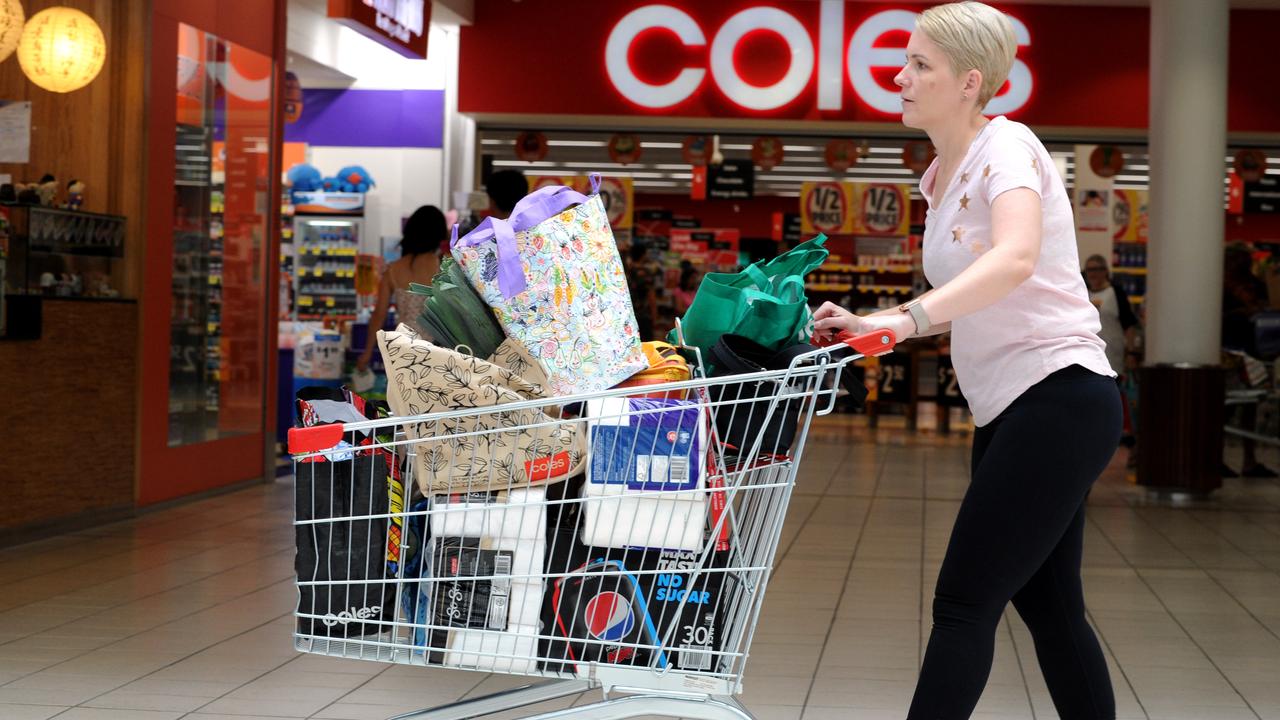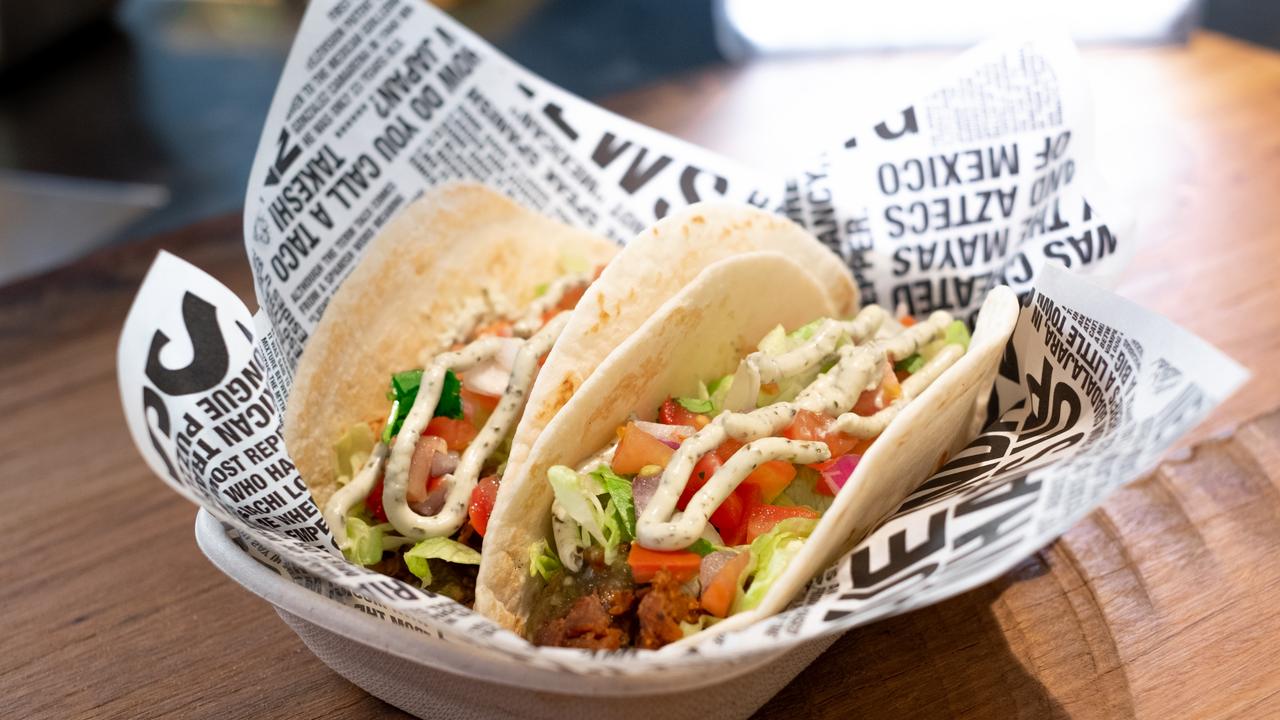Inflation and shops reopening cuts into Australia’s online buying obsession, says DHL Express boss
Online shopping spiked during the first two years of the pandemic, but DHL Express Australia’s boss says purse strings are tightening as inflation bites.

Australia’s obsession with online shopping is beginning to wane as inflation eats into disposable income, and bricks-and-mortar stores rebound from three pandemic-plagued years, says the boss of DHL Express Australia.
Gary Edstein, who heads the German-owned logistics giant’s local operations, expects the peak parcel delivery period to soften this year after a bumper result in the 2020 and 2021 lockdown years.
DHL’s commonwealth-owned rival, Australia Post, delivered about 52 million parcels last Christmas. It has been preparing for a busy year, warning shoppers to buy their festive gifts early to ensure they make it under the tree in time, and dispatching head office staff to delivery centres to help process the deluge of parcels.
Mr Edstein said while DHL was also preparing for a parcel delivery peak, which is expected within the next four weeks, it was not expected to be as high as previous years.
“I don’t envisage peak to be as big as what we’ve had before,” he said.
“Back in 2020-2021 people were locked up, isolated, shopping online. Now that we’re out and about we’re spending discretionary income on things like hospitality and travel.
“We’ve also seen inflation and interest rates go up and there is less discretionary income for online retail, so it’s sort of softening in BTC (business-to-consumer).”
But Mr Edstein – who will retire from DHL at the end of next month after 36 years’ service – said business-to-business deliveries had been strengthening as companies took advantage of several free-trade agreements, which had helped lift export volumes.
He was speaking as DHL released its annual export barometer, which revealed 70 per cent of companies were confident they would grow sales in the next 12 months, despite inflation reaching its highest level in 30 years and aggressive interest rates from the world’s biggest central banks beginning to bite.
“Recent global events have highlighted the interconnectedness of supply chains and the critical importance of logistics in ensuring the continuity of trade flows and supply of vital goods,” Mr Edstein said.
“Although pandemic-related export challenges have remained on the scene in 2022, Australian exporters have assessed potential risks to their supply chains and business operations, strategically implementing a range of actions to mitigate disruptions.”
Mr Edstein was speaking from personal experience after DHL deployed a variety of its delivery channels — including sea and airfreight — to ensure three UK teams made it to the starting line of the Australian Grand Prix earlier this year. The Formula One teams’ arrival looked in doubt after they were caught up in global supply chain bottlenecks.
Mr Edstein — who did not name the teams, one of which is believed to be Williams – said they had their equipment rerouted via Singapore, where it left a ship and boarded a dedicated DHL air freighter bound for Melbourne after it was caught in ongoing delays from the Suez Canal’s reopening.
Mr Edstein said commercial airfreight parcel delivery capacity was unlikely to return to pre-pandemic levels for another 18 months. To combat this, DHL has launched more of its own dedicated air-freighters, including a daily service from Singapore to Melbourne.
He said the need to shore up supply chains was bolstering business-to-business trade, as was several free-trade agreements Australian had secured in recent years, including its deal with China.

Despite the relationship between Canberra and Beijing taking a battering under the previous federal government – with China banning or imposing high tariffs on a range of Australian products, from beef and barley to wine and lobster – Mr Edstein said 60 per cent of local businesses were capitalising on the China-Australia Free Trade Agreement.
DHL surveyed 948 Australian businesses from August 31 to September 21 as part of its export barometer.
“Obviously what we’re hoping for is to see China stabilise more, especially with the Covid situation. China is an incredible market to Australia, both inbound and outbound,” he said.
“I think what was more interesting in the survey with the FTAs was there’s still 25 per cent of companies that didn’t realise that these free trade agreements actually existed, specifically to the USA and also to China.
“So I think it’s incredibly important that we promote the fact that we do have these bilaterals, these FTAs, to major markets and we encourage exports to go online and seek the information required with respect to these free trade agreements.”



